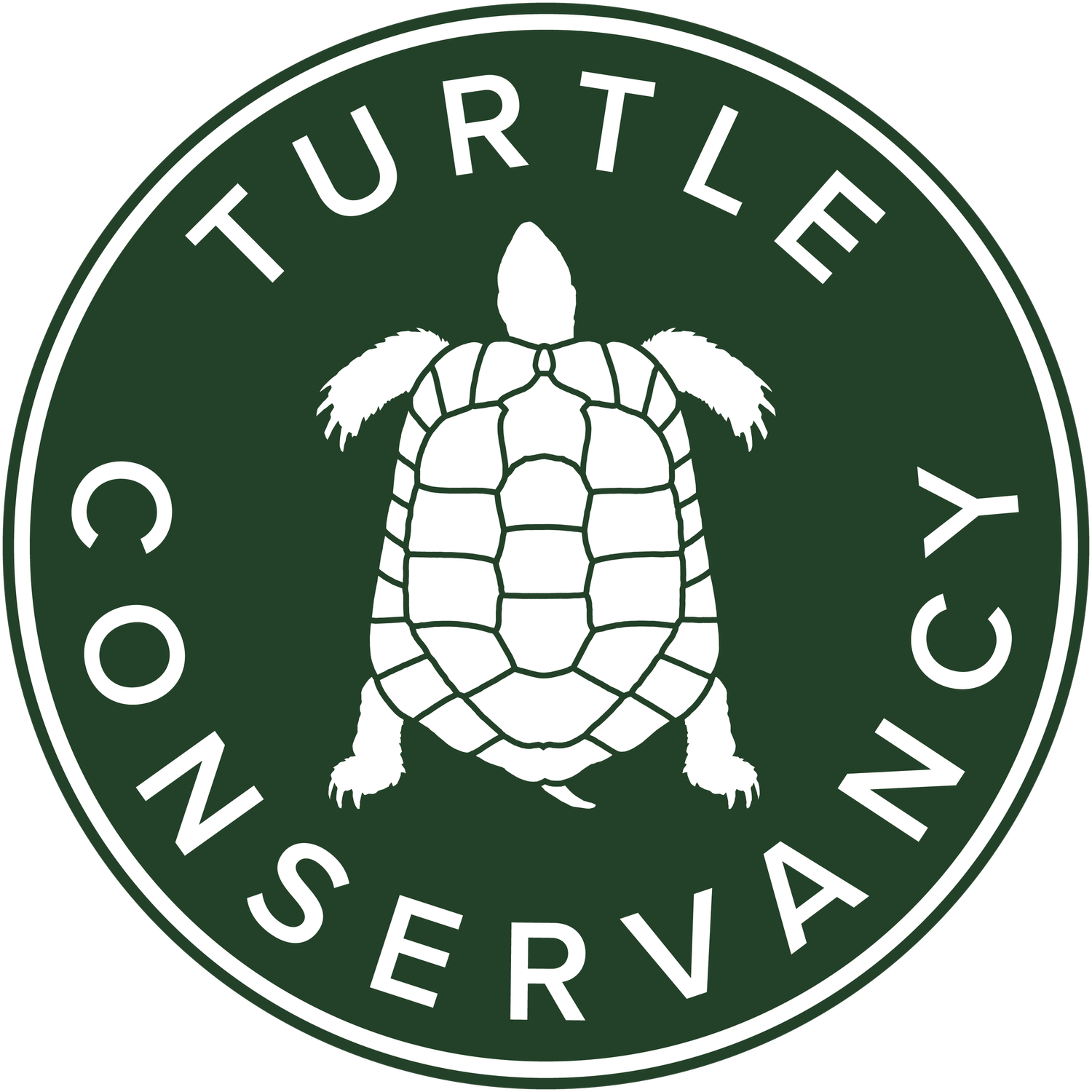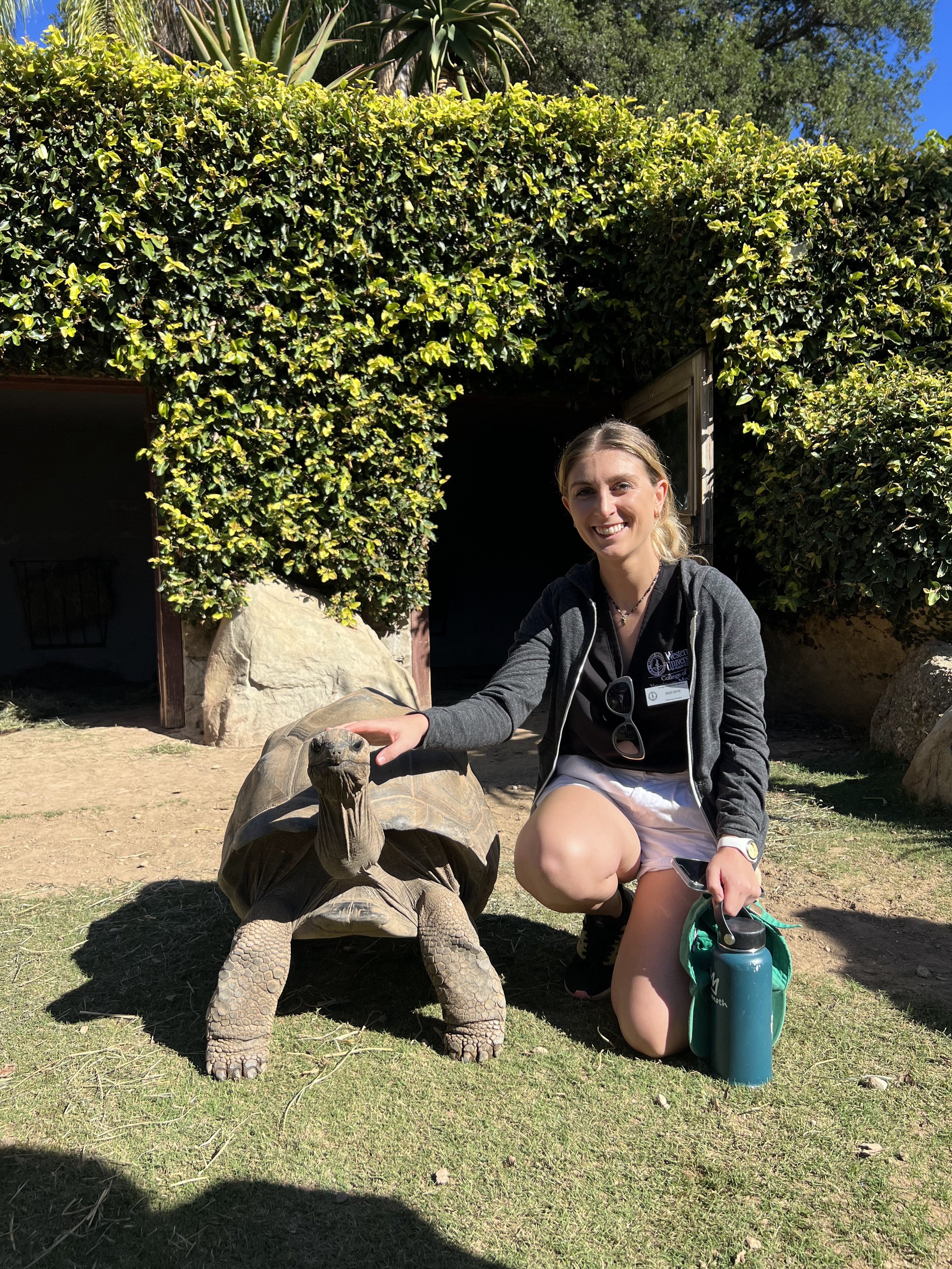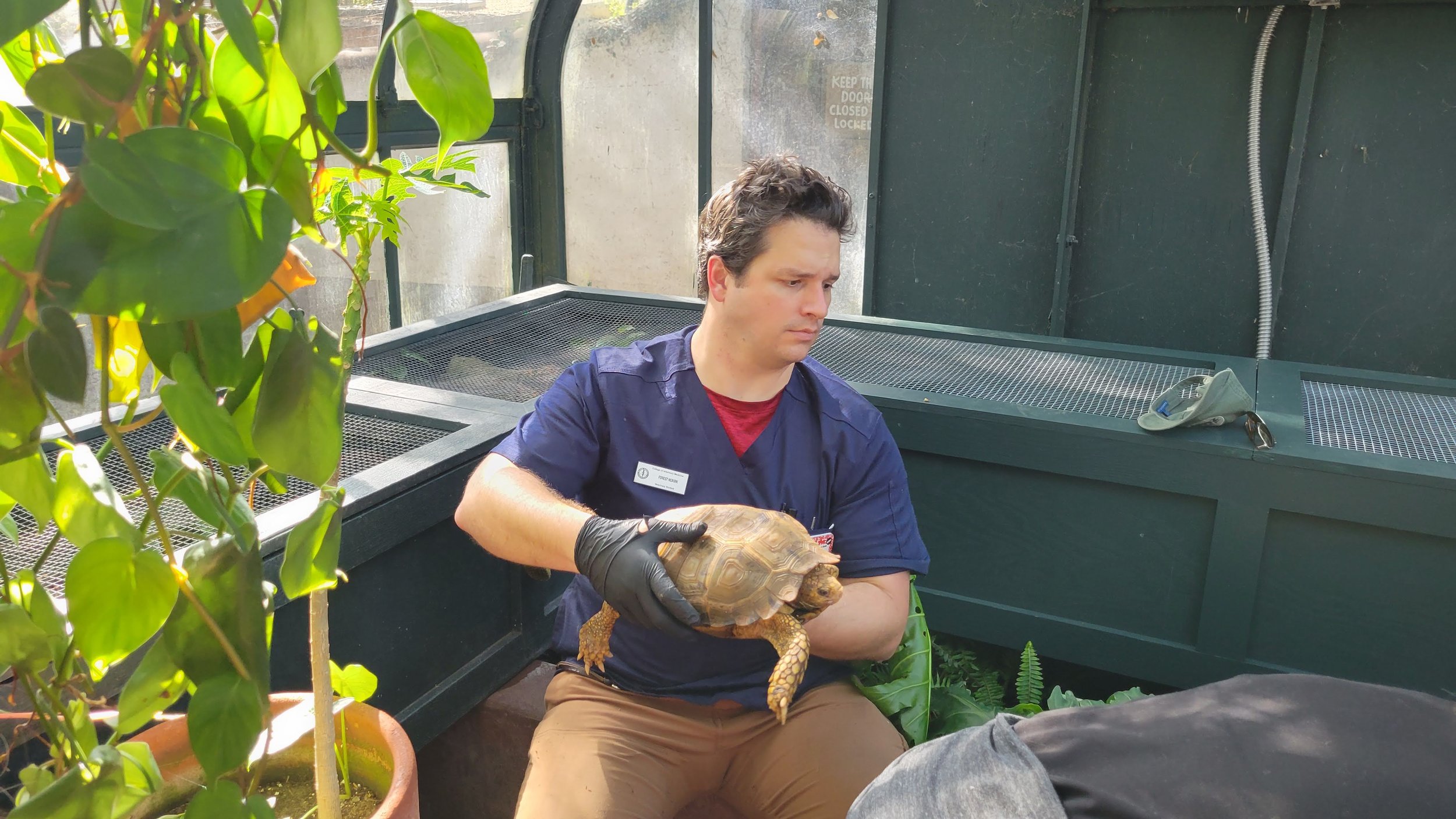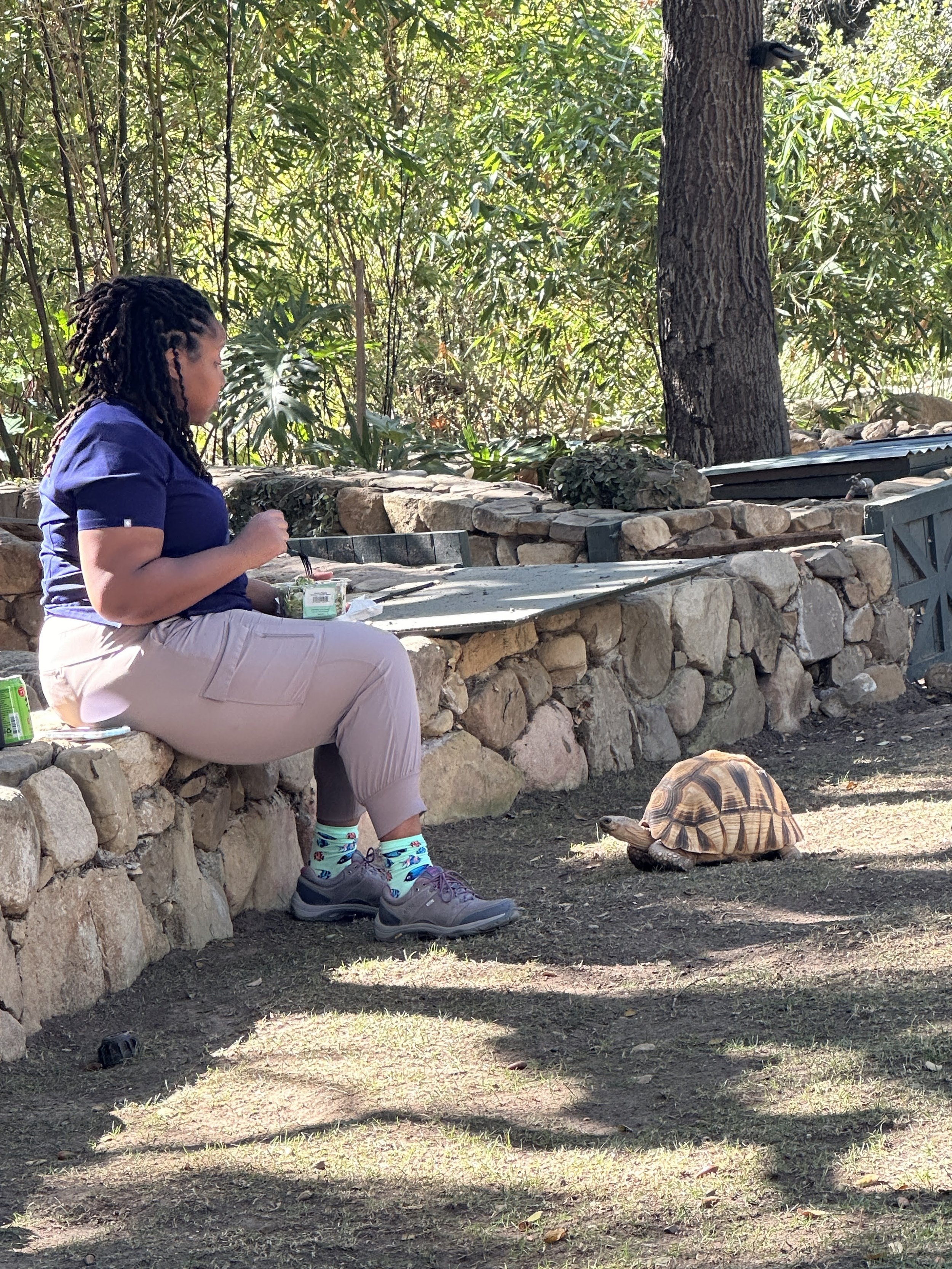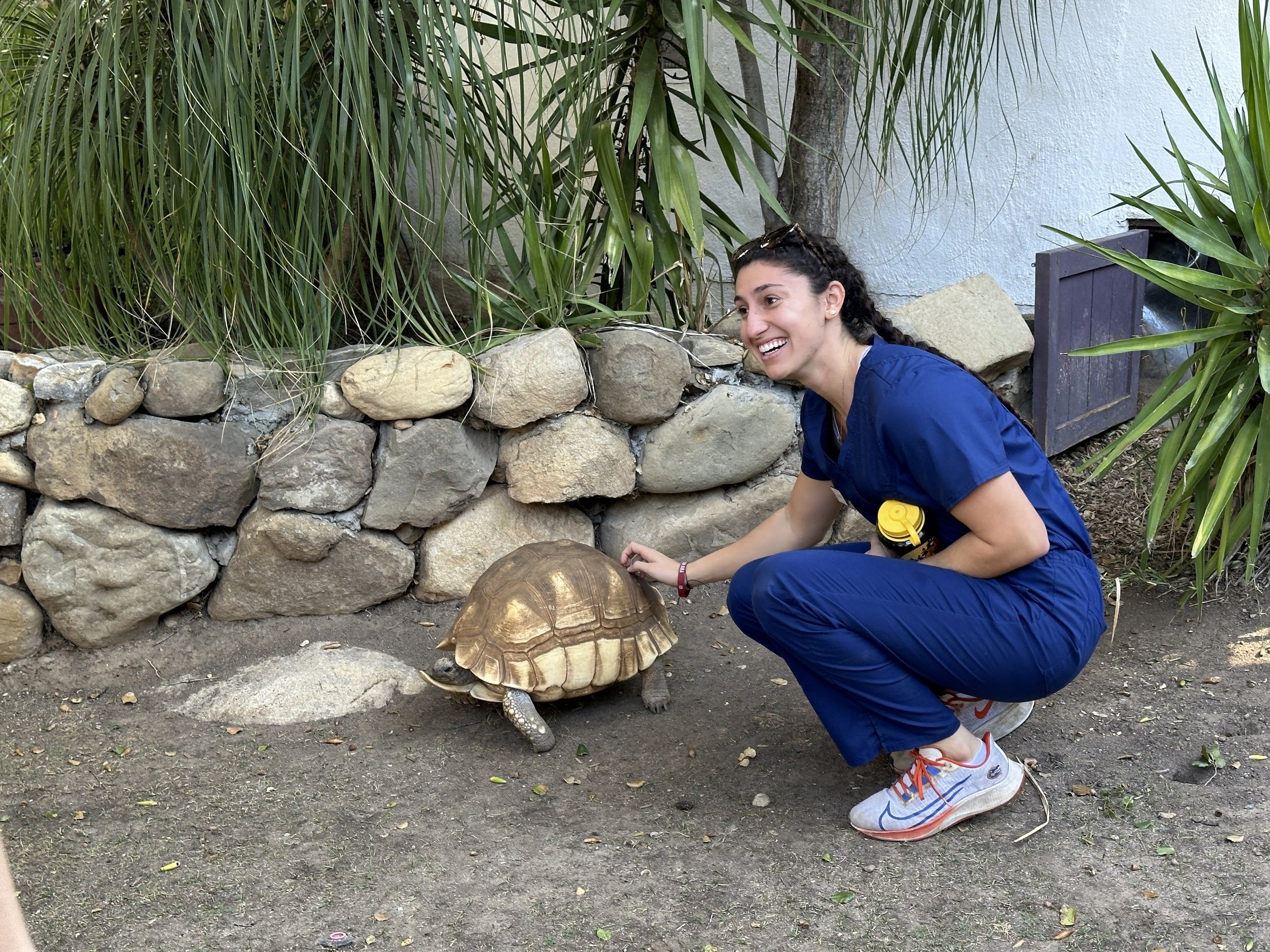TC director, Dr. James Liu, educates on tortoise health with the help of a radiated tortoise (Astrochelys radiata) assistant
On Sunday, October 22nd, 30 veterinary students from Western University of Health and Science embarked on a day dedicated to turtle medicine at the TC. Under the guidance of Dr. Curtis Eng, Director of Clinical Rotations at Western University, visiting veterinarian Dr. Jonathan Ho, and TC director Dr. James Liu, these students had the unique opportunity to interact closely with some of the TC residents. The day was structured around several educational stations.
At the first station, students learned about tortoise beak trims. Tortoises possess continuously growing beaks, and captive tortoises sometimes require beak trims to maintain their beak length. Their beaks are keratin and lack any nerve endings, so while grinding the beak is not painful, most tortoises do not enjoy it and retract into their shells, further complicating the procedure. During this hands-on experience, students focused on Burmese black mountain tortoises, a large and incredibly strong Asian tortoise species. Using a dremel tool, students carefully ground down the tortoises' beaks, providing them with practical skills and insight into the complexities and physical demands of this task.
The second station introduced students to the concept of pit tags for tortoises. Similar to microchipping dogs or cats, tortoises can also be identified individually using pit tags. However, the process is more intricate due to the tortoises' tough skin and their ability to retract their back legs into their shells. Rising to the challenges, students practiced inserting microchips under the skin of the tortoises' back legs, honing their skills in this delicate procedure.
Lastly, students conducted health checks and fecal examinations on various turtle species. They delved into the intricacies of turtle anatomy, learning how to assess the health of these creatures. Additionally, they collected fecal samples and examined them for parasites and nematodes under a microscope.
Throughout the day, these veterinary students not only expanded their knowledge of turtle medicine but also honed their practical skills. We extend our gratitude to both the dedicated students and instructors for valuable service to our valuable animal collection. The TC is grateful to provide the next generation of animal practitioners with the opportunity to learn the unique skills associated with chelonian care.
